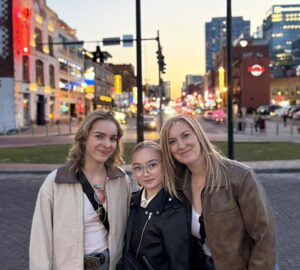By Laura Bohnert
Peacekeeping extends well back into Canada’s history; it’s the foundation of our national identity—we are a peacekeeping country; it’s one of the core components of what Canada reputedly is, tying into our painstaking politeness and apologetic hospitality. But are we really the peacekeepers we’ve made ourselves out to be, or are we merely politely sustaining the illusion to conceal its failure?
Peacekeeping is a military intervention operation that features impartial observers who serve as mediators during times of conflict. The mediators watch the movements of warring armies, helping to protect local civilians, and supervising things like ceasefires.
It first began with the United Nations (UN) back in 1948, and Canada has been involved since the 1956 Suez Crisis. However, the failure of some overseas missions, and the scandal of others, has been calling Canada’s peacekeeping claim to fame into question since the 1990s.
Since its start, more than 125,000 members of the Canadian Armed Forces have served on international peacekeeping missions, and close to 130 have been killed.
And that list of fatalities forms part of the apparent reason Trudeau is hesitating to officially join UN international peacekeeping operations—despite the Liberal government’s pledge to provide UN peacekeeping operations with as many as 600 troops and 150 police officers. During a Liberal caucus meeting on Parliament Hill, Trudeau hinted that part of the reason for the government’s hesitation involves the “politically chaotic and potentially bloody” list of destinations.
The risk of losing more Canadian soldiers to a peacekeeping mission is cause enough for hesitation, but the potential for a controversial destination to incite a repetition of the Somalia scandal may not be a risk the new Liberal government is ready to take.
The Somalia Scandal occurred between 1992 and 1993, when Canadian Forces participated in a UN and US-led international military coalition effort to restore order and distribute humanitarian supplies across Somalia. The troops came under attack by Somalia warlord armies; numerous troops, along with one Canadian, were killed, and two Canadian paratroopers, prompted a high-profile inquiry and public scandal when they tortured and beat a local teenager to death. The tragedy led to the embarrassment of the then-Chrétien government along with Canada’s peacekeeping reputation, and it eventually caused the disbanding of the Airborne Regiment.
“We have a difficult history in Africa as peacekeepers, and we need to make sure that, when we embark on any…military mission, we make the right decisions about what we’re going to do, how we’re going to do it, and the kind of impact we’re going to have on the ground and on Canadians,” Trudeau quoted during a weekend meeting of the national caucus on Parliament Hill in Ottawa on Saturday, March 25.
Government officials were considering Mali, the Central African Republic, and Congo as possible destinations last summer.
Of course, Trudeau’s hesitation may not be limited to the attempt to tactfully navigate a tricky political scene; the $450-million cost of the effort over the next three years may also form part of that hesitation.
And there is always the Trump dilemma. Trump’s presidency introduced uncertainty enough for the countries (Canada included) whose economies hinge rather critically on a few yay or nays from The Donald, and now the Trump administration’s plans to drastically scale back funding for UN peacekeeping operations could be putting more than just US deployments at risk.
However, regardless of the reason, Trudeau’s hesitation may be landing him in hot water with an increasingly impatient UN, and that may not bode well for the government’s future—especially since Canada is hosting a major gathering of peacekeeping nations later this year—and since securing a seat on the decision-making body of the UN in 2021 has been a top foreign policy priority for the Trudeau government. Both of those details presuppose a commitment to the international peacekeeping operation, which means it may be more than a little embarrassing for Trudeau (and the country) if he decides to back out now.
Of course, embarrassment shouldn’t be the deciding factor in a decision that could detrimentally impact countless lives, but that all depends on how much of a preoccupation our PM has with his image, doesn’t it?







More Stories
Rising tariffs, skyrocketing duties and an Albertan forestry industry in need of support at home